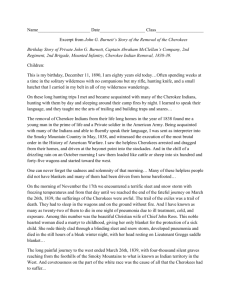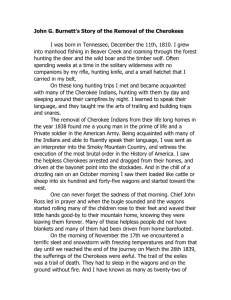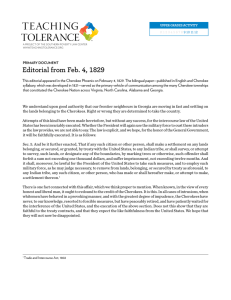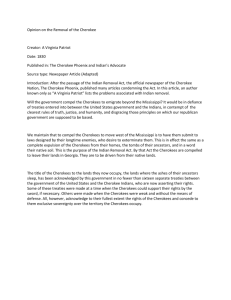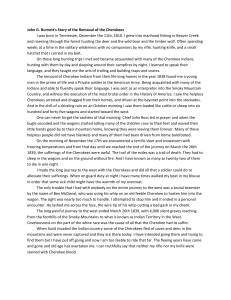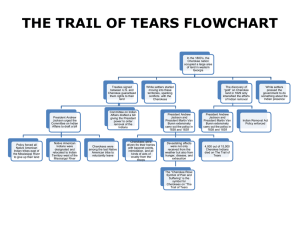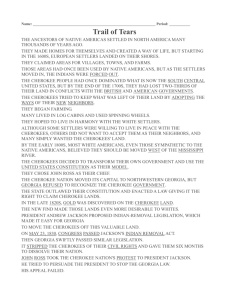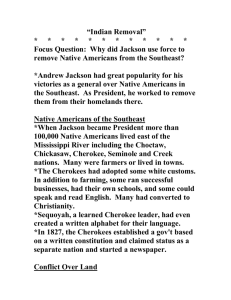Wordly Wise 1
advertisement
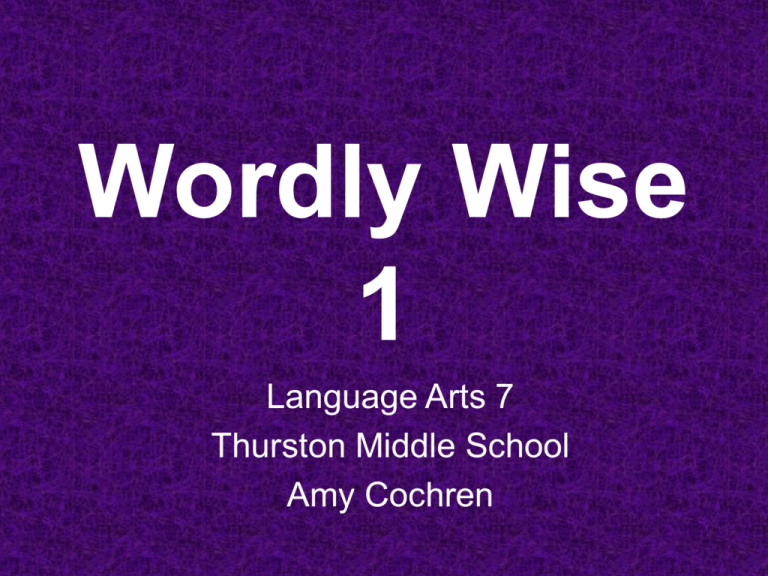
Wordly Wise 1 Language Arts 7 Thurston Middle School Amy Cochren 1. abate to become weaker; to decrease 2. acknowledge To admit existence of; To express recognition or thanks 3. agent A person who acts for or does business for another; Something that brings about a result 4. authority The right to give orders, make decisions, or take action; An expert source of information 5. devastate To ruin or destroy completely 6. epidemic Rapid spreading of a disease to many people at one time 7. estimate A number that is not exact; A careful guess; To figure out roughly 8. evict To force out of property by taking legal action 9. impartial Not favoring one side more than another; fair 10. industrious Hardworking; Not lazy 11. infuriate To make very angry 12. irrelevant Having nothing to do with the subject 13. precise Exact or accurate 14. sham Something fake or false; Not genuine; fake To pretend 15. trek A long, slow, and difficult journey; To travel slowly and with difficulty 1. 2. 3. 4. 5. abate acknowledge agent authority devastate 6. epidemic 7. estimate 8. evict 9. impartial 10. industrious 11. infuriate 12. irrelevant 13. precise 14. sham 15. trek Test Format: Fifteen fill in the blank sentences with a word bank. The word bank will have the vocabulary word as listed in the form given in the book. You will have to decide if you need to change the word in any way. You may have to change the tense or form of the word. The form must be spelled properly! Strategies for Studying: Create three lists of the vocabulary words: a. Nouns b. Adjectives c. Verbs Knowing how the word functions will help you select the right word to fill in the blank. Nouns: 1. 2. 3. 4. 5. 6. agent authority devastation epidemic estimate precision 7. sham 8. trek Adjectives: 1. 2. 3. 4. 5. 6. unabated 7. irrelevant acknowledged 8. sham devastating epidemic impartial industrious verbs 1. 2. 3. 4. 5. 6. abate acknowledge devastate estimate evict sham 7. trek Strategies for Study: Take the time to complete the Wordly Wise activities thoughtfully. Rushing through the homework just to finish quickly will not help you on the test! For Example: Ex. A #5 (a) An agent is… (d) something that produces a result. Strategies for Study: Use Exercise E as a practice tool for the test. Study how the vocabulary word was used in the passage. Practice asking and answering the questions to yourself. Question: Why did smallpox kill so many Cherokees in such a short time? Answer: Many Cherokees were killed by smallpox because it was an epidemic. Question: About how many Cherokees died of smallpox in 1745? Answer: It was estimated that approximately half of the population was killed by the epidemic. Question: Did the Cherokees’ appeals slow down the theft of their land? Answer: The theft was unabated by their requests. Question: What is the meaning of agent as used in the passage? Answer: The meaning of “agent” in the passage was “one who does business for another”. Question: Why was the Cherokees’ last treaty a sham? Answer: The Cherokee signers had no authority to sign for the Cherokee Nation. Question: Why might we think that the Cherokees were good farmers? Answer: The Cherokees were industrious and able to live off of their land. Question: Were those who wanted the Cherokees’ land influenced by the fact that the Cherokee signers of the 1835 treaty had signed illegally? Answer: They found that to be irrelevant. Question: What was the meaning of acknowledged in the passage? Answer: The meaning was “commonly accepted and recognized”. Question: Why do you think President Andrew Jackson was infuriated by the chief justice’s opinion? Answer: He was infuriated because he did not want to acknowledge that he allowed the sham and was a cause of such hardship to the Cherokee Nation. Question: What is the meaning of authority as used in the passage? Answer: “Authority” meant “the right to make decisions”. Question: What happened when the Cherokees tried to evict illegal settlers? Answer: The illegal settlers ignored the requests to evict them. Question: How should the government have behaved dealing with the disputes between the Cherokees and the settlers? Answer: They should have been impartial. Question: How far did the Cherokees have to travel to get to what is now Oklahoma? Answer: They trekked approximately 900 miles. Question: Is the figure of 20,000 persons forced out of their homes and exact guess? Answer: No, it was an estimate. Question: What kind of effect did the forced removal of the Cherokees from their land have on them? Answer: It was estimated that approximately 4,000 Cherokees died on the “trail of tears” trek to Oklahoma.
